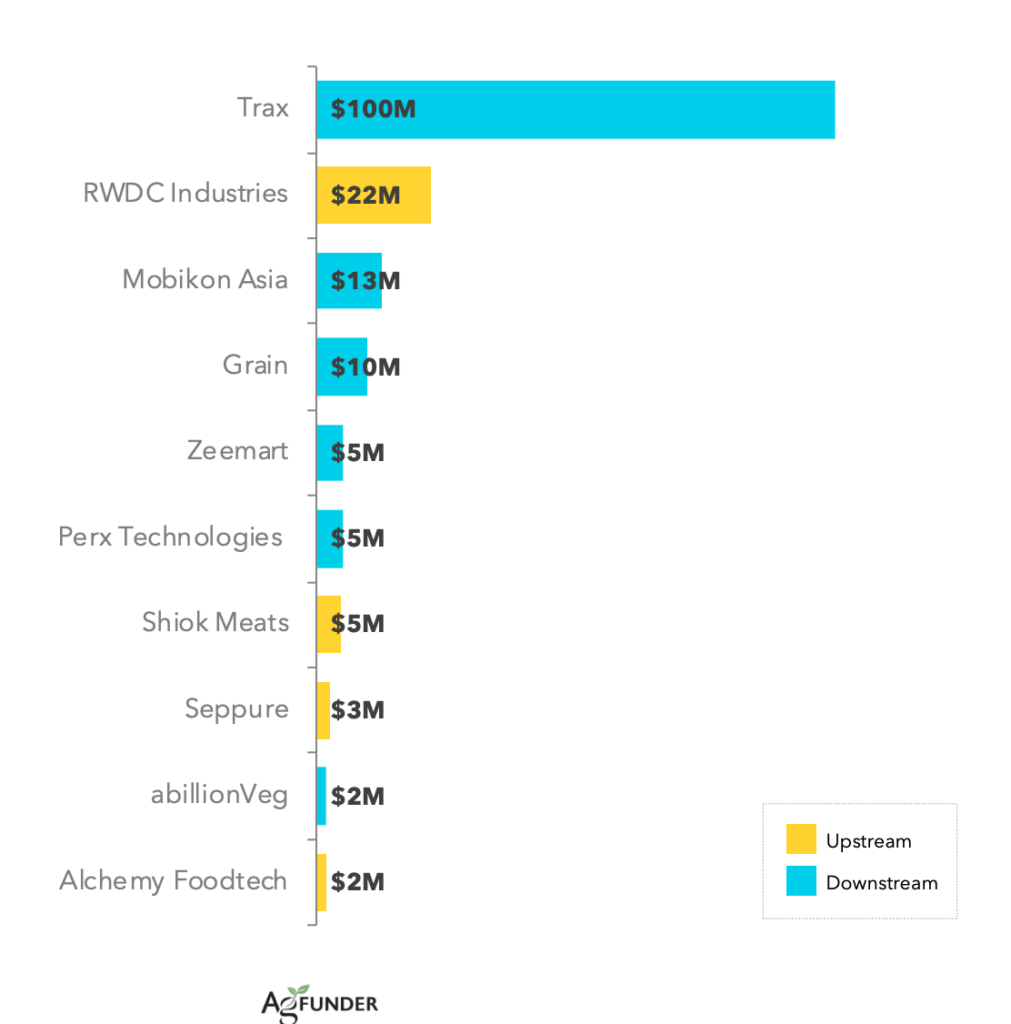With a heavily urbanized, densely populated land area of just a few hundred square kilometers, Singapore doesn’t have much in the way of traditional agriculture. Nevertheless, as Southeast Asia’s foremost financial, technological, and commercial hub, the city-state is the prime destination for agrifoodtech investment in the region.
According to the first-ever edition of AgFunder’s ASEAN Agrifoodtech Investment Report, released earlier this week, Singapore-based startups raised a total of $177 million across 37 deals last year — more than any other country in the bloc.

The largest deal in Singapore — and the whole of ASEAN — last year was retail tech provider Trax‘s $100 million Series D round. Bioplastics maker RWDC Industries, diner engagement and analytics startup Mobikon Asia, and delivery-only online restaurant Grain were the also among the top funded.
AgFunder spoke to John Eng, assistant vice president, agrifood at Singapore’s Economic Development Board, to get his insights on why the city-state is leading the region in ag and food startup investment and what the future holds for the ecosystem. The interview with him is included in the full version of the report — which you can download here — and is re-shared below for AFN readers.
AgFunder: How would you characterize the Singapore agrifoodtech ecosystem in 2020?
Eng: The increasing importance of food resilience in the last two to three years has accelerated investment to catalyze innovation and grow the sector. Singapore has supported six accelerators that will accelerate over 150 agrifoodtech startups over the next three years. From lab-grown protein to indoor farmed vegetables, we are proud of our growing base of homegrown startups such as Shiok Meats, TurtleTree Labs, Sustenir, and ComCrop.
We are also excited to welcome global players into our ecosystem. UK-based insect technology company AgriProtein has set up its global R&D hub in Singapore. Switzerland-based Buhler and Givaudan also announced a first-of-its-kind joint innovation center here that will work with the ecosystem to develop plant-based food products.
What are the main challenges facing agrifoodtech startup innovation in Singapore – and what are the biggest opportunities?
The sector as a whole is still a relatively nascent one. Some of the initial challenges include understanding and navigating regulatory considerations and also forming the right partnerships to test and launch products.
One key, unique opportunity in Singapore is the expertise among the ecosystem of corporates here — such as in specialty chemicals, agri-commodities, and food processing and services — to help startups commercialize and also scale into Asia’s other markets.
To give startups a shot in the arm for R&D, we are also looking at ways to build up shared, ready infrastructure, such as pilot plants.
Which deal in 2019 really stood out for you, and why?
Shiok Meats is a local cell ag company developing a way to grow shrimp meat in a lab. In 2019, it planted Singapore’s flag on the global stage by becoming the first cultured meat startup in the prestigious Y Combinator program.
It also secured $4.6 million of seed investment and has since closed another $3 million of bridge financing. It expects to bring its lab-grown shrimp product to restaurants in Singapore some time in 2021.
Got a news tip? Email me at [email protected]





